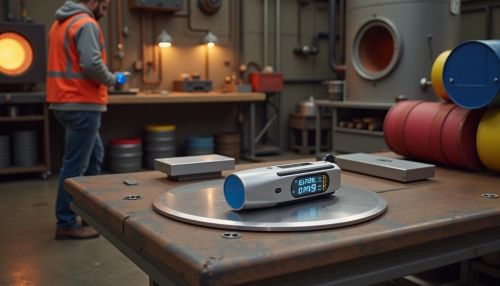Electromagnetic Compatibility (EMC) 2014/30/EU
In today’s interconnected world, Electromagnetic Compatibility (EMC) 2014/30/EU plays a critical role in maintaining the seamless operation of electrical and electronic devices. This directive ensures that equipment does not generate electromagnetic interference or succumb to it, thereby safeguarding reliability and safety in diverse industries. Businesses aiming to penetrate the European market must meet these requirements to obtain CE Product Certificates (CE Marking) and ensure compliance. In this comprehensive guide, we’ll explore the key principles, certification process, and benefits of adhering to EMC 2014/30/EU.
What Is Electromagnetic Compatibility (EMC) 2014/30/EU?
The Electromagnetic Compatibility (EMC) Directive 2014/30/EU is a vital European Union regulation designed to standardize the electromagnetic environment. It ensures that:
Devices do not emit electromagnetic disturbances that could interfere with other equipment.
Devices are resilient to expected levels of electromagnetic interference (EMI).
Key Industries Impacted by EMC Compliance:
Automotive: Ensuring vehicle electronics operate without interference.
Healthcare: Maintaining reliability in medical devices like MRI machines and pacemakers.
Consumer Electronics: Preventing signal disruptions in everyday devices.
Industrial Equipment: Ensuring manufacturing tools perform accurately.
Learn More About Electromagnetic Compatibility (EMC) 2014/30/EU Audit ...

Why Is EMC 2014/30/EU Important?
Compliance with Electromagnetic Compatibility (EMC) 2014/30/EU is essential for businesses that manufacture or import electronic devices into the European Economic Area (EEA). Non-compliance can lead to product recalls, legal penalties, and reputational damage.
Benefits of EMC Compliance:
Market Access: EMC certification is mandatory for selling electronic goods in the EU.
Consumer Trust: Compliance ensures product reliability and safety.
Reduced Interference: Minimizes risks of operational disruption in critical industries.
The EMC Certification Process
Achieving EMC compliance involves several steps. Here’s a detailed breakdown:
1. Understand Directive Requirements
Familiarize yourself with the specific provisions of Electromagnetic Compatibility (EMC) 2014/30/EU relevant to your products. Key aspects include:
Electromagnetic disturbance limits.
Immunity to electromagnetic interference.
2. Testing and Evaluation
Testing is a critical phase to ensure compliance. Devices must undergo:
Emission Testing: Verifying that equipment does not exceed allowable EMI levels.
Immunity Testing: Assessing the device’s ability to function under electromagnetic stress.
3. Technical Documentation
Prepare a comprehensive technical file, including:
Product description and specifications.
Test reports and results.
Risk assessment and mitigation strategies.
4. Engage a Notified Body (If Required)
For certain products, a Notified Body may need to verify compliance. These independent organizations provide additional assurance that your device meets EMC requirements.
5. Affix the CE Marking
Once compliance is confirmed, affix the CE Mark to your product. This mark signals adherence to EU regulations and allows free movement within the EEA.
Learn More About Electromagnetic Compatibility (EMC) 2014/30/EU Requirements ...

Common Challenges in EMC Certification
Complex Testing Requirements: Understanding specific testing standards can be challenging.
Documentation Gaps: Insufficient technical files can delay certification.
Evolving Standards: Staying updated with changes in EMC regulations requires constant attention.
Pro Tip:
Partnering with an experienced CE certification provider can streamline the process, ensuring timely and cost-effective compliance.
Case Study: EMC Compliance in the Healthcare Industry
Challenge: A medical device manufacturer aimed to certify their new MRI machine under EMC 2014/30/EU.
Solution: Working with a Notified Body, the company conducted rigorous EMI and immunity tests. Detailed technical documentation was prepared, addressing all potential risks.
Outcome: The device achieved CE certification, enabling market entry and fostering trust among healthcare providers.
Learn More About Electromagnetic Compatibility (EMC) 2014/30/EU Standards ...
Recent Trends and Data
Market Growth: The global electromagnetic compatibility testing market is projected to reach $2.8 billion by 2028, highlighting the growing demand for compliance.
Technological Advances: Innovations like 5G are increasing the complexity of EMC requirements, necessitating advanced testing methodologies.

Conclusion: Why EMC Certification Matters
Compliance with Electromagnetic Compatibility (EMC) 2014/30/EU is not just a regulatory requirement but a strategic investment. It ensures your products are safe, reliable, and market-ready, enhancing consumer trust and business growth. By adhering to this directive, businesses can confidently enter the European market and stay ahead in an increasingly competitive landscape.
Ready to Certify Your Products?
Contact us today to start your EMC certification journey. Our expert team will guide you through the process, from initial assessment to affixing the CE mark. Ensure your products comply with EMC 2014/30/EU and unlock seamless access to the European market.
- Get Your Legal Advice
- All Experts Lawyers
- All Experts Lawyers
- Great Discounted Rates
- Fighting for The Average Joe
- Get The Money You Deserve
- All Experts Lawyers
- Justice For All


Point of View
Our Vision
A lawyer or attorney is a person who practices law, as an advocate, attorney, attorney at law, barrister, barrister-at-law, bar-at-law, civil law notary, counsel, counselor, counselor, counselor at law, solicitor, chartered legal executive, or public servant preparing, interpreting and applying law, but not as a paralegal or charter executive secretary. Working as a lawyer involves the practical application of abstract legal theories and knowledge to solve specific individualized problems, or to advance the interests of those who hire lawyers to perform legal services.


